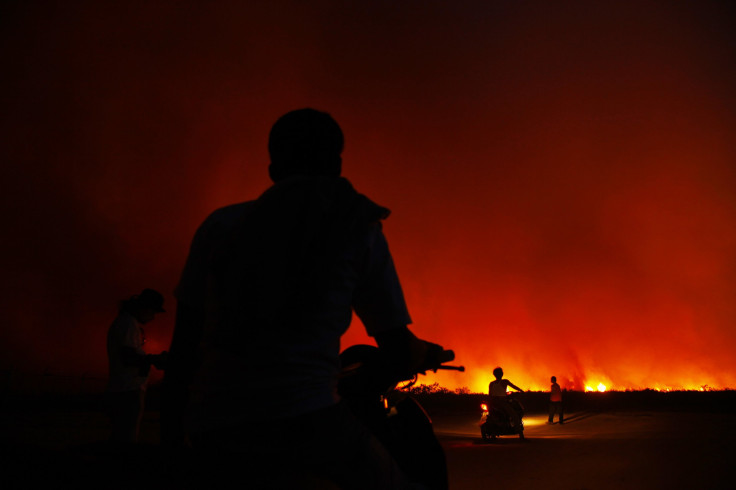Indonesia Claims Sumatra Forest Fires Caused By Errant Slash-And-Burn Farming Of Malaysian And Singapore Palm Oil Companies

Palm oil has always been one of the major exports of Malaysia and Indonesia, accounting for billions of dollars for both countries. Following the Indonesian forest fires that caused dangerous haze levels in Singapore and Malaysia, however, the industry has received pressure to change its existing production methods, which cause social and environmental damages.
Between them, the two Southeast Asian economies produce around 85 percent of the world’s palm oil, over 45 million tons a year, according to Risk.net, a portal that provides financial risk management news and analysis.
The industry contributed $42.3 billion to their economies last year, averaging $750 a ton, estimated Dr. Dodo Thampapillai, an economist at the Lee Kuan Yew School of Public Policy, and there are 4.5 million people from the two countries depending on the crop for their livelihood, according to World Wide Fund for Nature Singapore (WWF).
Palm oil is used in many products, from ice cream and chocolate, to soap and shampoo, the Straits Times, a Singaporean newspaper, reported.
"It is almost impossible to avoid palm oil," said Ms Khor Yu Leng, a visiting research fellow at the Institute of Southeast Asian Studies who specializes in agribusiness research. "It is everywhere."
However, palm oil has come under scrutiny for its destructive production process in recent times, after Malaysian and Singapore palm oil companies were accused of being responsible for fires in the Indonesian region of Sumatra by an Indonesian Forestry Ministry official, according to Straits Times.
Unsustainable production of palm oil could involve indiscriminate clearing of rain forests in the two countries, said Thampapillai.
Essentially, forests are destroyed by errant companies and farmers using the slash-and-burn method, which some believe to improve soil fertility, according to the Straits Times.
When the method is done on highly flammable peat land, the fires can spread great distances underground and make them difficult to extinguish, according to Roundtable on Sustainable Palm Oil, a nonprofit promoting sustainable palm oil farming.
Sustainable methods of clearing using heavy machinery should be encouraged, Khor said, although such methods might raise the price of palm oil by about 1 percent.
© Copyright IBTimes 2024. All rights reserved.











